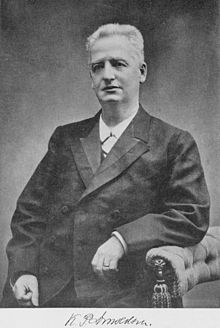Swedish author, journalist, politician and committed pacifist
.mw-parser-output .hidden-begin{box-sizing:border-box;width:100%;padding:5px;border:none;font-size:95%}.mw-parser-output .hidden-title{font-weight:bold;line-height:1.6;text-align:left}.mw-parser-output .hidden-content{text-align:left}@media all and (max-width:500px){.mw-parser-output .hidden-begin{width:auto!important;clear:none!important;float:none!important))You can help expand this article with text translated from
the corresponding article in Swedish. (July 2015) Click [show] for important translation instructions.
View a machine-translated version of the Swedish article.
Machine translation, like
DeepL or
Google Translate, is a useful starting point for translations, but translators must revise errors as necessary and confirm that the translation is accurate, rather than simply copy-pasting machine-translated text into the English Wikipedia.
Do not translate text that appears unreliable or low-quality. If possible, verify the text with references provided in the foreign-language article.
You must provide
copyright attribution in the
edit summary accompanying your translation by providing an
interlanguage link to the source of your translation. A model attribution edit summary is Content in this edit is translated from the existing Swedish Wikipedia article at [[:sv:Klas Pontus Arnoldson]]; see its history for attribution.
You may also add the template ((Translated|sv|Klas Pontus Arnoldson)) to the
talk page.
For more guidance, see
Wikipedia:Translation.
Klas Pontus Arnoldson |
|---|
 |
| Born | (1844-10-27)27 October 1844
|
|---|
| Died | 20 February 1916(1916-02-20) (aged 71)
|
|---|
| Awards | Nobel Peace Prize (1908) |
|---|
Klas Pontus Arnoldson (27 October 1844 – 20 February 1916) was a Swedish author, journalist, politician, and committed pacifist who received the Nobel Peace Prize in 1908 with Fredrik Bajer. He was a founding member of the Swedish Peace and Arbitration Society[1] and a Member of Parliament in the second Chamber of 1882–1887.
Early life
Arnoldson became the railway clerk and rose to the post of stationmaster in the year 1871 to 1881. He left the railways and devoted entirely into politics. In 1881, he was elected to the riksdag, the Swedish parliament.
Works
He attempted to shape the public opinion of both Norway and Sweden in favour of peaceful settlement. He also wrote journalistic pieces such as "Is World Peace Possible?", "Religion in the Light of Research", and "The Hope of the Centuries".[2]
